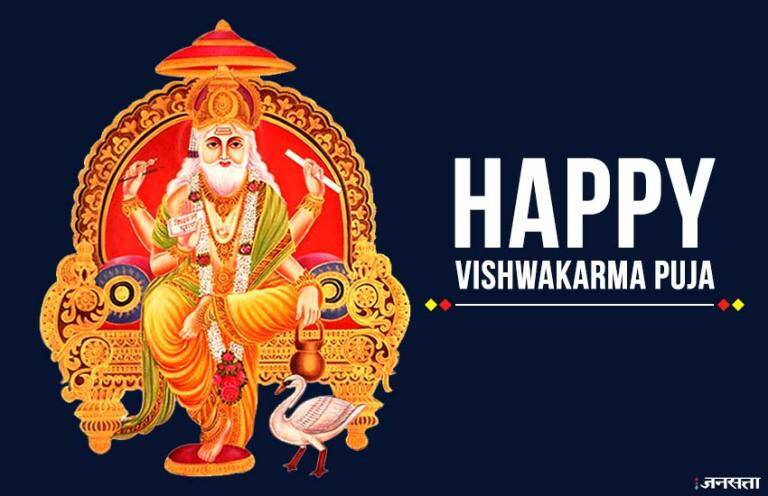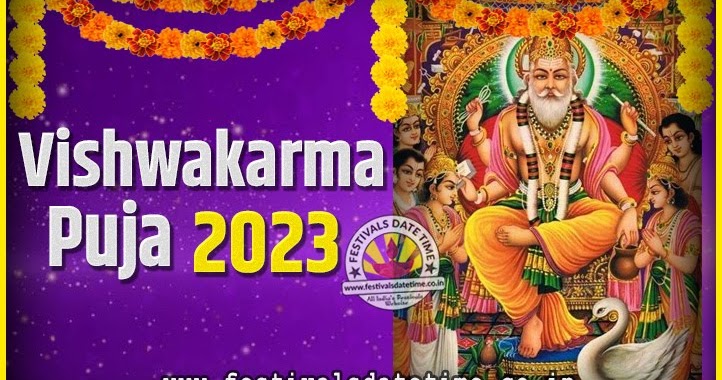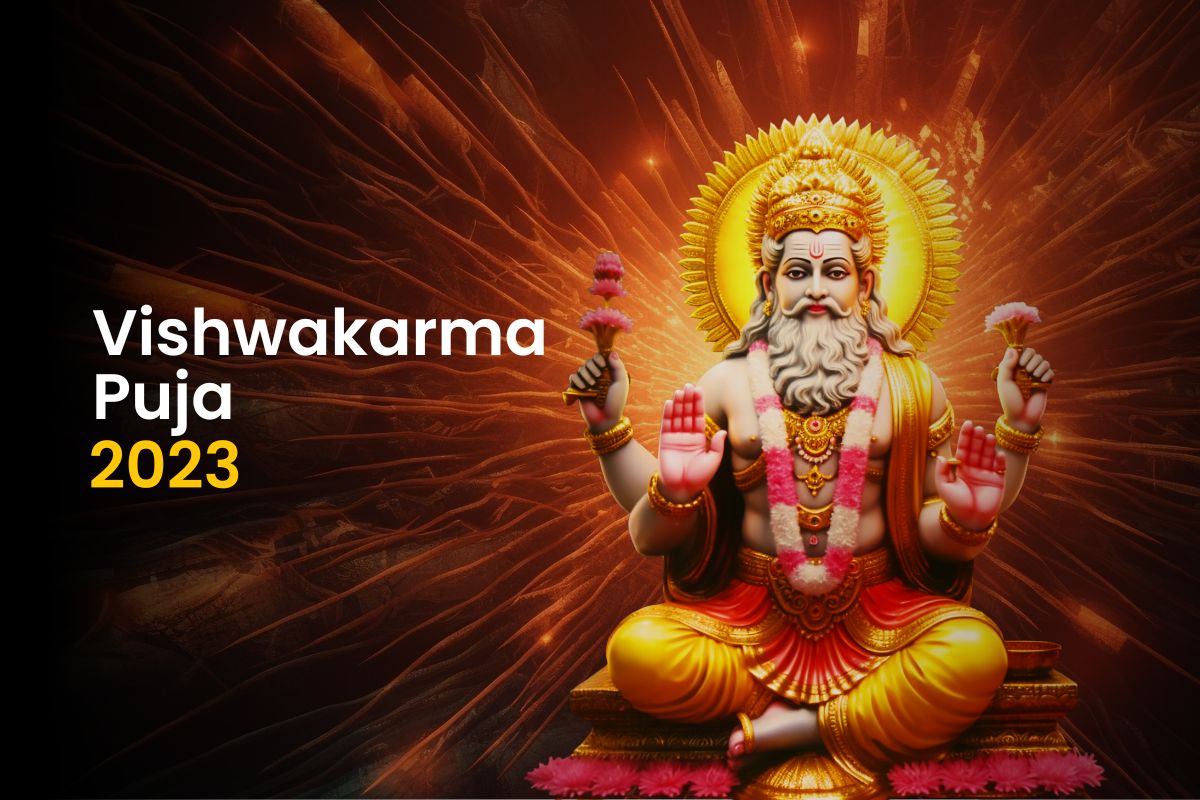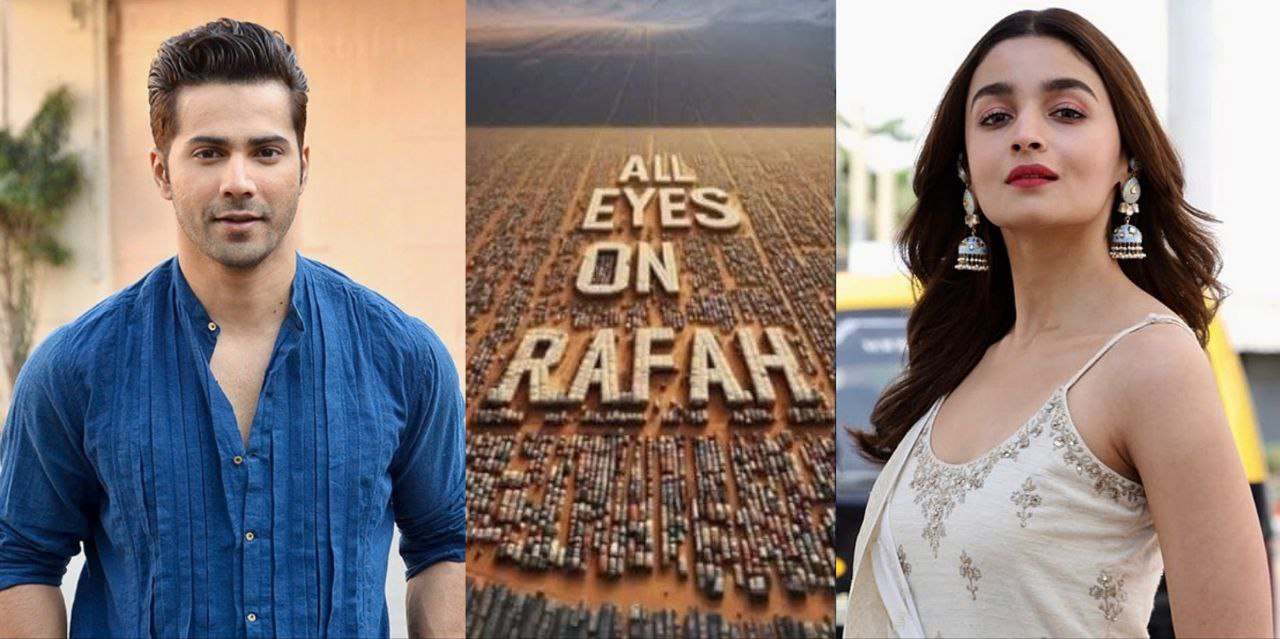Vishwakarma Puja is a Hindu festival that celebrates Vishwakarma, the divine architect and craftsman of the gods in Hindu mythology. This festival is dedicated to honoring Vishwakarma’s craftsmanship and creativity and is especially significant among artisans, craftsmen, and factory workers in India.

Here are some key points about Vishwakarma Puja:
- Date: Vishwakarma Puja typically falls on the 17th or 18th of September each year in most parts of India. However, the date may vary depending on regional and local customs.
- Significance: Vishwakarma is regarded as the divine architect, engineer, and craftsman who is believed to have built the cities of the gods and their weapons and vehicles. This festival is a way to seek his blessings for success and prosperity in one’s craftsmanship and work.
- Observance: On Vishwakarma Puja, people decorate their workplaces, factories, and tools. Special prayers and rituals are performed to invoke blessings for safe and prosperous working conditions. This includes cleaning and consecrating machinery and tools.
- Celebration: The festival is marked by the worship of Lord Vishwakarma’s idol or image, which is usually placed in a prominent location at the workplace. Many workers and craftsmen perform aarti (a ritual of offering prayers with a lit lamp) to seek his blessings. People also offer fruits, flowers, and sweets to the deity.
- Customs: Some people also perform pujas and yagnas (ritual sacrifices) to appease Vishwakarma. Many factories and industrial units organize special events and gatherings for their employees on this day.
- Regional Variations: Vishwakarma Puja is more popular in certain regions of India, such as West Bengal, Bihar, Jharkhand, and some parts of North India, where it is celebrated with great enthusiasm.
- Holiday: In some places, Vishwakarma Puja is observed as a public holiday, especially in industrial areas, allowing workers to participate in the festivities.

Overall, Vishwakarma Puja is a day to show gratitude to the tools and machinery that help individuals earn a livelihood and to seek blessings for a safe and prosperous work environment. It is an important cultural and religious celebration for those involved in craftsmanship and industry in India.











